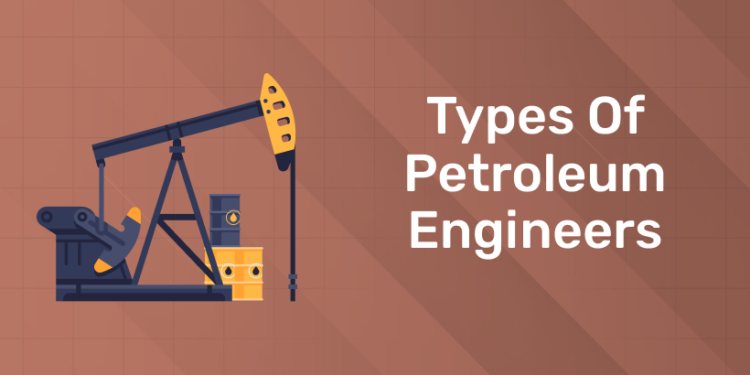Table of Contents
Petroleum engineering is an engineering field that deals with oil extraction and refining. Although the branch is very new, it has become very popular due to its relatively high income. Petroleum engineers can earn good money by working for major oil companies or by starting their own business. In this article, we will explain what petroleum engineering is and how to get started as a petroleum engineer, or at least find out if it is right for you.
What is Petroleum Engineering?
Petroleum engineering is the study and practice of extracting oil and gas from the earth. It’s a very specific type of engineering that deals with things like drilling wells, building refineries, and maintaining pipelines. Petroleum engineers are responsible for everything that happens after drilling a well.
As an engineer in this field, you must know and understand the entire process of extracting oil from the ground and processing it into a usable form. There are many different types of petroleum engineers and different jobs you can get with this degree. However, all positions require a deep understanding of the oil industry.
Join our Oil and Gas Course! Get Free Demo!
What Does a Petroleum Engineer Do?
Petroleum engineers focus on studying and evaluating oil and gas reservoirs and analyzing their profitability. They may study maps of these reservoirs to determine the best and most efficient way to access these energy sources and where to place wells. Their main goal is to ensure optimal economic production from the reservoir while meeting safety and environmental standards. Many petroleum engineers use computer technology to analyze potential production and flow from wells. Some of the tasks that petroleum engineers can perform include:
- Design of gas and oil extraction equipment
- Developing a mining plan for natural energy resource
- Operational machines used in drilling and recovery of gas and oil
- Studying reservoir maps to determine the most efficient well location
- We provide technical advice to solve problems in the drilling process.
- Surface set design
- Development of new technologies for natural gas recovery
Petroleum Engineer Responsibilities
Petroleum engineers typically must:
- Work with geologists, production and reservoir engineers, and business managers to interpret well log results and predict production potential.
- Create detailed development plans for reservoir performance using mathematical models
- Choose the right equipment in the well for different functions
- Completion design – the part of the well that communicates with the reservoir rocks and fluids.
- Designing systems to assist flow through wells, such as using submersible pumps.
- Manage fluid behavior and production chemistry issues
- Evaluate and recommend flow improvements
- Management and control of wells with branching at the bottom (horizontal well, polygonal well)
- Use well and reservoir remote sensing techniques and monitoring data to manage reservoir value and determine appropriate engineering interventions.
- Understanding and managing how a set of wells interact
- Manage contractor relationships related to health, safety and environmental performance
- Supervise well site workers and manage staff at all levels, including training and supervising crews.
- Coordinate with individual departments to ensure accurate project progress
- Responsible for equipment maintenance
- Communicate with your customers and keep them informed of progress.
How To Become a Petroleum Engineer
Here are the steps an aspiring petroleum engineer must take to qualify for a job in this field.
1. Earn a bachelor’s degree
A bachelor’s degree is usually the minimum requirement to pursue a career as a petroleum engineer. Many people choose to study chemical engineering, petroleum engineering or mechanical engineering. These engineering programs provide students with knowledge and experience through specialized classes, labs, and field learning opportunities. Earning a bachelor’s degree in one of these engineering fields usually takes four to five years.
2. Apply for an engineering position
A bachelor’s degree qualifies many people to apply for entry-level positions as petroleum engineers. Most entry-level engineers work under the supervision of senior petroleum engineers and may need to complete formal training. You can also consider an internship while studying or immediately after graduating from your bachelor’s program. This will help you gain entry-level experience and network with other engineers.
3. Become licensed
Entry-level petroleum engineering jobs rarely require a license. However, higher levels of independence and leadership roles often require individuals to obtain a professional engineering (PE) license. To be eligible to take the exam for this license, you must earn a degree through an engineering program accredited by the Accreditation Board for Engineering Technology (ABET) in most states, take and pass the Fundamentals of Engineering (FE) exam, and meet the requirements. comply The following qualifications: You are required to have at least 4 years of relevant work experience.
Get Certified! Get Confident! Join our Oil and Gas Course!
Types of Petroleum Engineers
Petroleum engineering is divided into different subfields, each of which has its own focus. This includes drilling, production, reservoir, and processing engineering.
| Drilling Engineering | Drilling engineering is concerned with the process of drilling a well. |
| Production Engineering | Production engineering works at the interface between the reservoir and the well, including artificial lift, drilling, and down hole flow control. |
| Reservoir Engineering | Reservoir engineering focuses on predicting and maximizing hydrocarbon recovery. |
| Processing Engineering | Process engineering focuses on the refining and processing of oil and gas into salable products. |
Drilling Engineers
These engineers are responsible for designing the drilling rigs used to extract oil from the ground. This work can be done with horizontal or vertical drilling methods and requires very high precision both in the drilling rig and in the drilling site. Drilling engineers can decide how deep to drill, what kind of rock to encounter, and how fast to move underground to extract as much oil as possible.
They work with reservoir engineers to determine site characteristics and design which type of drill will best meet their needs. They also work with geologists to determine what types of rocks are there and whether those rocks contain oil.
Eligibility to Become a Drill Engineer
To become a drilling engineer, you need a bachelor’s degree in petroleum engineering. A drilling certificate is also required. This usually means at least two years of experience. Drilling engineers must have good math skills, including accounting and information technology skills. You must also be able to read blueprints and be familiar with the materials used in drilling operations.
According to the Bureau of Labor Statistics, drilling engineers must have at least a bachelor’s degree in engineering, experience in drilling operations, and be licensed by the state in which they work.
Salary of Drilling Engineers
Drilling Engineer Salaries in the United States Compared by Location As of October 27, 2022, the average salary for a drilling engineer in the United States is $251,033. However, this number varies depending on your experience level, advanced education, and even the industry you work in.
Completion Engineers
Once the well reaches the target depth, the completion engineer steps in. The completion engineer is responsible for completing the wellbore by adding all necessary components and accessories such as pipe, casing and cement. Oil and gas can pass through it. We also make sure that everything is installed correctly so that there are no leaks or other problems in the well after drilling. Completion engineers are also responsible for completing additional tasks that may be required during the drilling process, such as running wireline logs and performing pressure tests.
Completion engineers typically work closely with rig operators and geologists to help them determine what needs to be done in any given situation. This is a very important operation because it ensures that all the equipment is installed correctly and there are no problems in the wellbore. Completion engineers have a wide range of responsibilities and must be able to multitask to get everything done on time.
Eligibility to become a Completion Engineer
To become a completion engineer, students usually study petroleum engineering or mechanical engineering. A qualified engineer should have an understanding of geology and chemistry as well as a strong background in mathematics and physics. You must also be able to work well in a team, as you will typically be working with other engineers and geologists on a drilling rig.
Salary of Completion Engineers
Based on our analysis of salary data, the average annual salary for a fulfillment engineer in the United States is $152,415, although some companies may offer higher salaries depending on the candidate’s experience and skill set.
Production Engineering
Production engineers monitor individual wells or groups of wells to ensure they are producing at maximum efficiency. Production engineers must ensure pressure and flow rate stability, properly control and address problems that arise (such as water flow or gas embolism), and control chemical additions (such as acids) to optimize hydrocarbon production.
Production engineers often work with completion engineers to determine the best method of stimulation. The primary responsibilities of a production engineer include creating production forecasts, handling liquid waste, and monitoring well production. Petroleum engineers discover and develop ways to extract oil and gas from underground reserves.
Eligibility to become a Production Engineer
To become a manufacturing engineer, you typically need an education that includes at least a bachelor’s degree in one of the following fields: petroleum engineering, chemical engineering, industrial engineering, or mechanical engineering. However, some companies may accept applicants with a bachelor’s degree in another field and extensive experience in the oil industry. An associate’s degree is not enough to work as a production engineer.
You must also be able to prove that you have the necessary skills and knowledge by passing certification exams and providing examples of work experience. If you don’t have experience working in the oil industry, you may need to get an internship or other entry-level position before applying for a production engineer job.
Salary of Production Engineers
The average salary for a production engineer in the United States is $71,546 per year, and the lowest salary reported by users is $49,321 per year. It depends on location, experience and skill.
Reservoir Engineer
Reservoir engineers estimate the amount of oil and gas that can be extracted from underground mineral deposits (called reservoirs). It also considers factors such as the depth of the deposit, its porosity and permeability to determine the best method of extracting oil and gas from the reservoir.
Reservoir properties such as pressure, temperature, and porosity determine the best way to extract resources from the reservoir without harming the environment or producing unnecessary waste. This includes the design and implementation of water infiltration, gas injection, steam injection, and other techniques. Reservoir engineers are also responsible for planning and executing drilling operations necessary to reach the bottom of the reservoir.
Eligibility to Become Reservoir Engineers
To become a reservoir engineer, you need a bachelor’s degree in geology, engineering, or petroleum engineering. A minimum of two years of on-the-job training experience and certification from a professional organization is required.
Salary of Reservoir Engineers
The average annual salary for a reservoir engineer in the United States as of October 27, 2022 is $124,533, but the salary range is typically between $110,367 and $142,728. However, it may be more or less depending on your experience and the company you work for. As you gain experience in this field, wages increase.
Career prospects of Petroleum Engineer
Many initial consultations are done on site, so we need someone who is physically fit and geographically mobile. This means that not only are you ready to go anywhere in the world, but you can also stay there for the duration of your project. If you are unable to relocate, your chances of getting the next job or promotion will decrease.
Once you complete the training program, you can move through a promotion structure from primarily technical roles to highly sought after and well-paid senior technical positions.
It is also possible to move into business roles in areas such as recruitment and marketing or leadership and management.
Senior roles include asset team leadership, business planning and analysis, non-operating joint ventures (NOJVs), asset management, operational oversight, environmental, safety, fire, health and project management.
Start your career in Oil and Gas field!! Join Now!
Frequently Asked Questions
What are the different types of petroleum engineering?
What is the best job for a Petroleum Engineer?
- Completions engineers.
- Drilling engineers.
- Natural gas engineers.
- Oil drilling engineers.
- Oil exploration engineers.
- Oil well engineers.
- Production engineers.
- Reservoir engineers.
What are the specialization of petroleum engineering?
During the evolution of petroleum engineering, a number of areas of specialization developed: drilling engineering, production engineering and surface facilities engineering, reservoir engineering, and petrophysical engineering.











